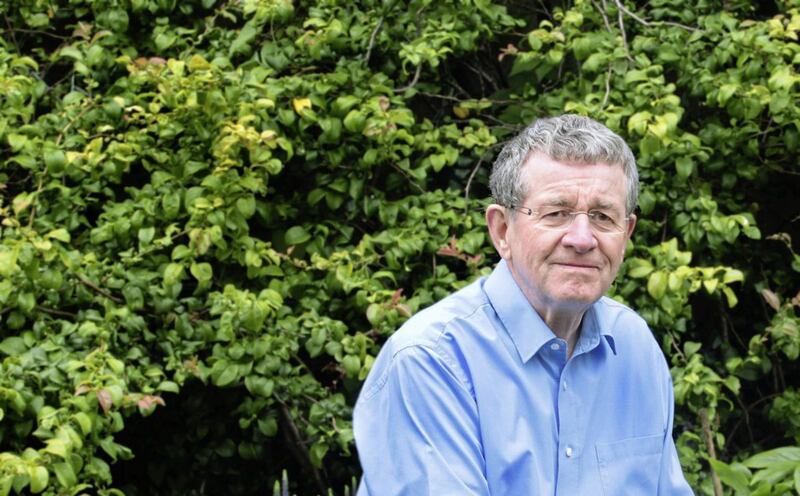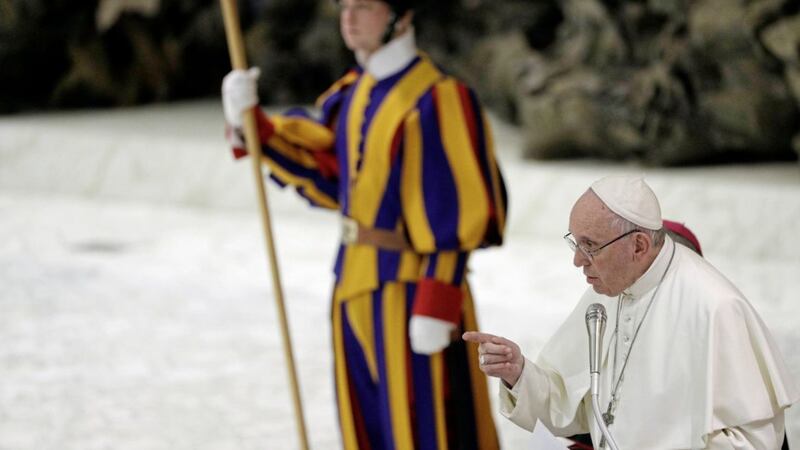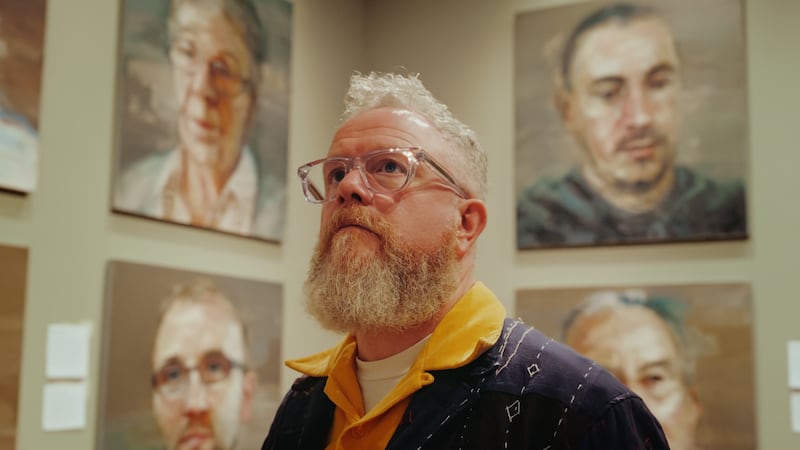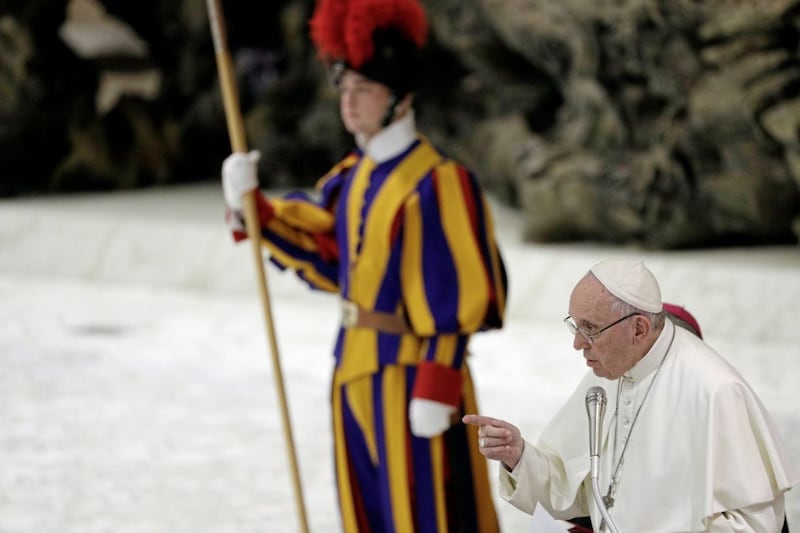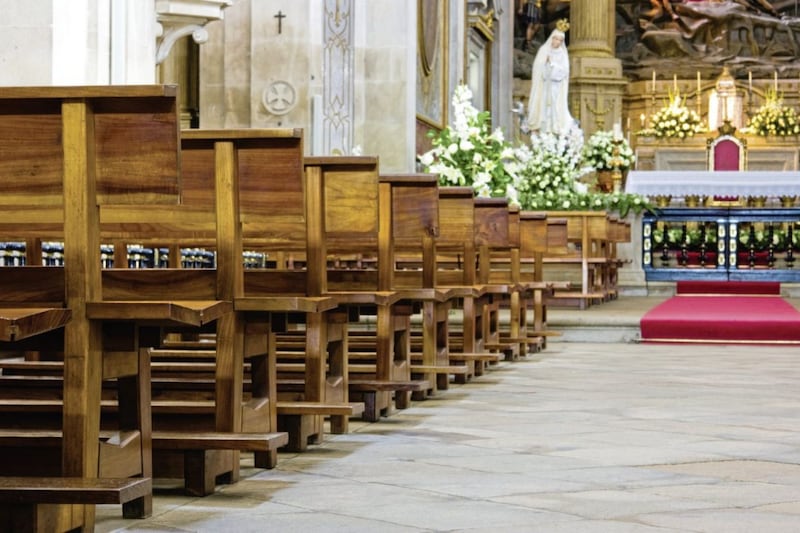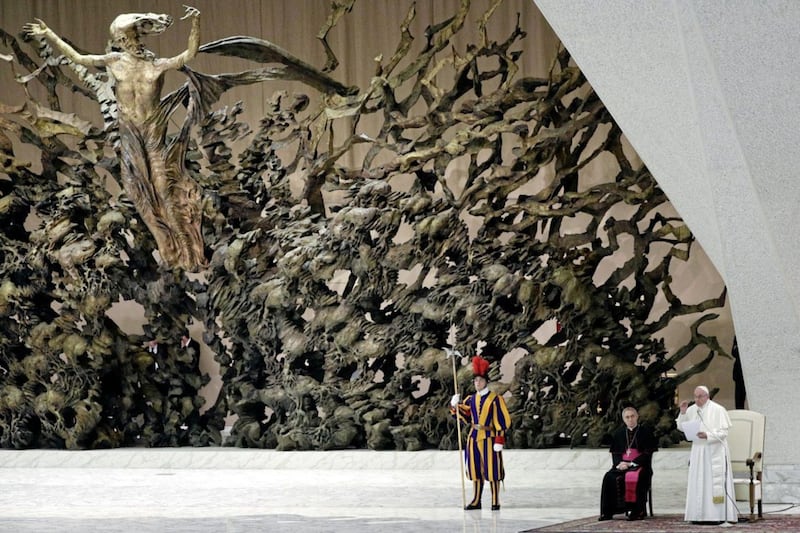
"ABSENT a comprehensive and communal response, not only will we fail to bring healing to victim survivors, but the very credibility of the Church to carry on the mission of Christ will be in jeopardy throughout the world..."
So insisted a December 2018 message from the Vatican to the world's top Catholic bishops.
These presiding bishops of every country in which Catholicism has a presence will meet in Rome next week, from February 21-24, to find a solution to one central problem: how to make Catholic bishops accountable for their handling of the task of safeguarding Catholic children from clerical abuse.
It was this issue that overshadowed the visit of Pope Francis to Ireland in August 2018, culminating in an online accusation from a former Vatican diplomat, Archbishop Carlo Maria Viganò, that the Pope himself had since 2013 been covering up the misdeeds of US Cardinal Theodore McCarrick. He was credibly revealed in 2018 to have been an abuser of seminarians and, allegedly, of a teenager.
Soon it became clear that US bishops are deeply divided over accountability and other issues, and unable to agree a unified strategy for the recovery of the US Church.
With Archbishop Viganò, some in the US hierarchy attribute the entire problem of clerical abuse to the toleration of a homosexual orientation within the Catholic priesthood, while others seem to be seeing in the too-often broken rule of mandatory priestly celibacy the root cause of the mishandling of the abuse issue.
Germany's Cardinal Reinhard Marx has forecast that 2019 will be a year of "unrest and opposition" in the global Church.
Beyond this month's summit, Brazil's bishops are due to meet in synod this October, to discuss among other matters the possibility of ordaining married Catholic men of proven character.
With Ireland now in its third decade of the abuse issue - and with the Irish priesthood also facing a severe crisis of continuity - what will Archbishop Eamon Martin contribute to next week's summit in Rome?
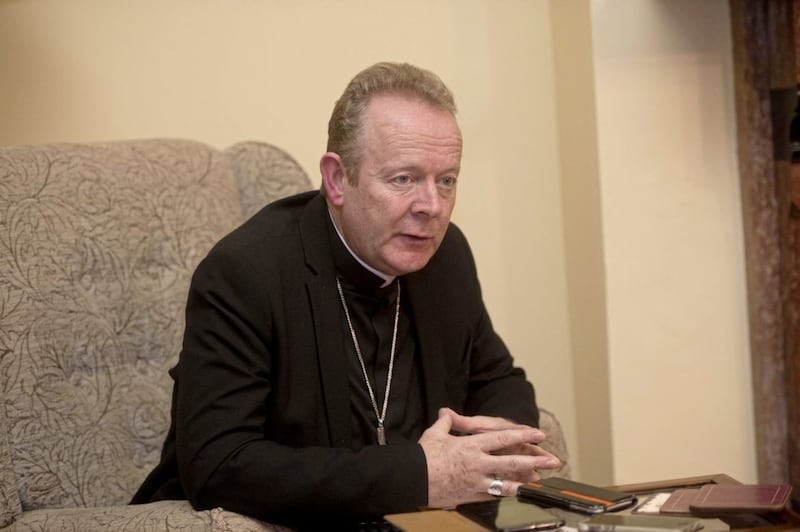
As yet there is no sign that he will rise to the challenge of lamenting the fact that more than half a century after Vatican II, Irish clergy and Irish lay people still occupy two separate worlds of discourse, unable to address together - in the same assemblies - the crisis of the clergy on the one hand and the crisis of the family on the other.
Every informed person in Ireland is aware that until 1994, when outraged Irish Catholic families took the abuse issue to the courts, Irish bishops felt obliged to conceal altogether the dangerous phenomenon of clerical sexual abuse from Irish Catholic parents.
That a new understanding and relationship, capable of restoring broken trust, is needed is equally obvious.
More than half a century after Vatican II, Irish clergy and Irish lay people still occupy two separate worlds of discourse, unable to address together - in the same assemblies - the crisis of the clergy on the one hand and the crisis of the family on the other
That this has not yet been found, despite the Church's national board for child safeguarding, the NBSCCC, is clear also - not least from the huge gulf between clergy and people, especially the young, that was revealed by the Republic's abortion referendum in 2018.
Individual bishops have worked hard to show solidarity with abuse victims, but why is it that more than two decades after the abuse issue first broke no way has been found to bring bishops, victims and ordinary believers together to share the same space and to talk the situation out?
The fundamental mistake of the cover-up was the clerical belief that the myth of clerical celibacy had greater importance than the safety of children and families.
The argument for mandatory priestly celibacy is that Jesus was celibate in service of others - but why did 'following Jesus' never also involve his abandonment of power over others, the circumstance that led to his crucifixion?
Why, by contrast, did and do ordained clergy still monopolise power within the Church, leaving the lambs that Peter was instructed to care for at the mercy of a system that privileged and protected the same clergy, until the truth was revealed by some of the abused families?
The continuing denial of structures within the Irish Church in which such basic questions can be asked is a clear symptom of the illness that seems certain to kill the current Irish Catholic clerical system altogether.
No Irish bishop has yet joined Archbishop Charles Scicluna of Malta in calling for bishops to be accountable to their own people, or complained about a canon law system that empowers a parish priest to dispense altogether with lay leadership in the spiritual life of the parish.
How can 'servant leadership' operate credibly on that basis? And what other conclusion can Irish Catholics draw from the continuing denial of accountability than that there is yet more Irish bad news under wraps?
The public questioning of clergy, including bishops, that goes with accountability must always be an ordeal - but a far worse ordeal was undergone by the innocent carpenter who founded the church.
This is surely another 'way of Jesus' that Catholic bishops are being called to imitate - the abandonment of power and secrecy - if the global Church is to be healed and to achieve full, honest, communion.
If Archbishop Martin could rise to the challenge of saying this in Rome next week, he could prove that the Irish Catholic Church has learned well from the lessons that began in 1994.
True healing could then begin, with entirely open dialogue. This basic Christian right has been denied in Ireland since 1965, when Dublin's Archbishop John Charles McQuaid declared - disastrously - that Ireland did not need Vatican II.
Anything less will leave us where we are, condemned to a continuing reign of unspoken truths, distrust and alienation - separate camps denied the frank interchange that goes with health.
As the abortion referendum and the exodus of the young from practice prove, the Irish Catholic Church is in truth already a diaspora, a dispersed and divided people, rather than a single healthy community.
Without proper accountability now, Irish Catholic clericalism will lead to the total dissolution of the Irish Catholic Church
- Sean O'Conaill is a member of the Association of Catholics in Ireland
